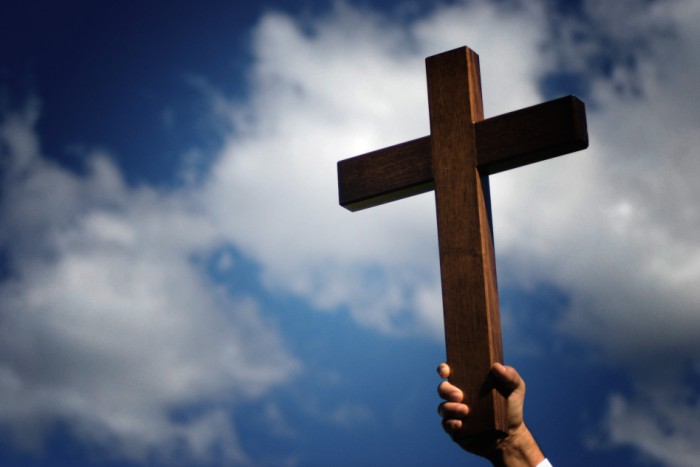The General Election and the Resurrection of Jesus
No-one can confess Jesus as Lord with integrity and exclude politics from that confession. By Peter Shepherd

So, we have a General Election. We are all to embark on this exercise in democracy that lies at the heart of our national political life. Cynicism and weariness will soon, no doubt, sap the energy of many.
Coincidentally, electioneering will take place during the Church’s celebration of Easter. Parliamentary candidates will battle for the votes that give them the positions they crave, calling for a decision to trust them with political power. At the same time, the risen Jesus also stands before us with his claims to our allegiance, asking for our commitment.
The contrasting worlds of politics and Christian faith may seem to have little to do with each other. One has to do with limited political power, exercised for a while and frequently hemmed in by compromise. The other is about personal trust in someone who claims to have absolute authority. As Jesus said to Pilate, his kingdom is not of this world.
And yet it is impossible to separate the public and the personal, the political and the spiritual. We all live out our lives in both spheres, and to pretend we can keep them in entirely different categories is not to do justice to either. For the follower of Jesus, his resurrection has political significance.
For a start, although the resurrection is a profoundly mysterious event, if it means anything at all, it must mean that Jesus is Lord of all. The one who claims supremacy over evil, injustice and death is no longer limited to a particular time, place or circumstance. He appeals to all people everywhere, in every aspect of their lives. No-one can confess Jesus as Lord with integrity and exclude politics from that confession.
The resurrection also points us towards something greater than political affairs. Politics is fundamentally concerned with such things as material well-being, freedom and protecting the needy, or at least it should be. The risen Jesus, on the other hand, reminds us that there are other even more profound matters in life. Even in the face of poverty, oppression and suffering, such as experienced by his immediate followers and by many others over the course of history, he offers the security and peace of his loving acceptance.
This does not mean that achieving a fairer and more just society is unimportant – quite the contrary, as the kingdom of Jesus is about those things too – but it does mean that we need not despair in the face of the frustrations and disappointments of political engagement, nor do we take the satisfaction and success it delivers too seriously. The resurrection helps us keep politics in healthy perspective.
Jesus gives us the assurance too that even in the darkest times there is always hope. This hope is not based on intellectual reasoning or optimism about the future, but on the assurance that Jesus, who overcame the desolation of the cross, is with us. Hope is essential in every area of life, including politics, and it is infectious.
Brexit, inequality, terrorism, global warming, growing debt, population increase, etc. naturally create anxiety. The media make us aware of problems as never before, with the result that we feel vulnerable and sometimes afraid. It is increasingly apparent that our political structures and processes cannot cope. This failure is a serious issue, leading to feelings of powerlessness and cynicism, and a desire to find someone to blame for the problems we are not able to solve.
It is unlikely that the General Election will make any significant difference, but the resurrection of Jesus means those of us who claim to follow him must engage positively with the political process it represents. To withdraw or despair is to deny the Lordship of Jesus.
We know that whatever the future holds he will remain at our side, and the hope he brings is not only a source of strength for us, but also a resource we can offer to others, regardless of whether the resurrection has any meaning for them.
Picture | Marian Trinidad | Creationswap
The Revd Dr Peter Shepherd is a Baptist minister. This reflection first appeared on his blog, and is republished with permission
Baptist Times, 25/04/2017